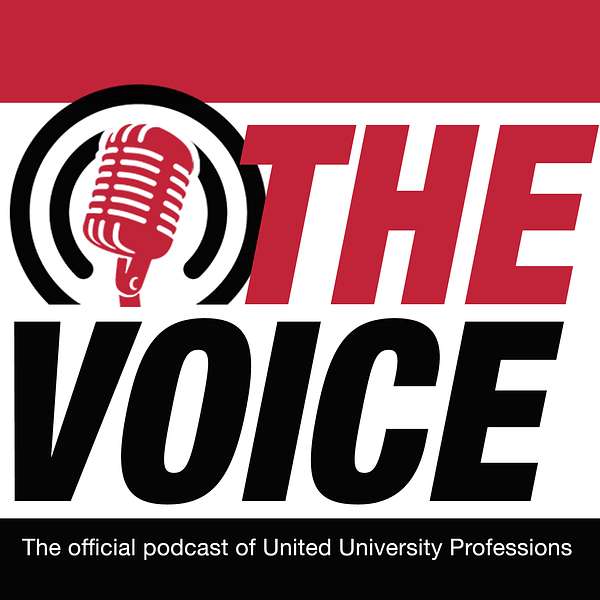
The Voice Podcast
The Voice is the official podcast of United University Professions, America's largest higher education union. We spotlight our hard-working members, and issues that are important to them and others who believe in a strong effective union.
The Voice Podcast
Why is childbirth deadlier when you're Black?
Central Brooklyn is the epicenter of New York City’s maternal health crisis—and has been for far too long. The community, home to Brooklyn’s only public teaching hospital, SUNY Downstate Health Sciences University, has the highest rates of severe maternal morbidity in the state.
Longtime UUP leader Rowena Blackman-Stroud, who died in December 2022, was dedicated to protecting the rights of every individual, regardless of age, race, gender or social status. We at UUP have taken up her fight because it was necessary to do so.
Here’s why:
- Nationally, much research has shown how maternal and infant mortality is dependent on one’s race. Last month, the National Bureau of Economic Research released a report that showed in California, the wealthiest black women die at twice the rate as wealthy white women. Poor black women die at the highest rates of any population groups, along with indigenous women.
- In New York City, the maternal mortality rate is 9.4 times higher for Black women compared to white women.
- In Central Brooklyn, Black women are two times as likely to experience severe maternal morbidity, or an unexpected life-threatening event, during pregnancy than white women. Hispanic women are three times as likely as white women to experience such an event.
- Black women in New York City accounted for nearly half of all pregnancy associated deaths in 2019, that from a January 2023 New York City Department of Health & Mental Hygiene fact sheet on pregnancy-associated mortality. Of those deaths, 33 percent occurred in Brooklyn.
UUP is advocating for expanding Downstate's mission by creating a center of maternal and child services at the hospital to serve Brooklyn and New York City. Downstate is uniquely located for such an expansion, as these services are desperately needed in the communities surrounding our public teaching hospital.
More needs to be done to rectify this serious situation, where it has been fueled by decades of systemic racism, neglect—and the state’s chronic underfunding of Downstate, a facility that provides health care services for all, even if they can’t afford to pay for care.
On the show, we speak with Sarah Miller, a co-author of the National
Bureau of Economic Research Study, which was released in January. She is an Assistant Professor of Business Economics and Public Policy at the Stephen M. Ross School of Business at the University of Michigan.
We also talk with Dr. Camille Clare, chair of the Department of Obstetrics & Gynecology at SUNY Downstate Health Sciences University, and a professor of Obstetrics and Gynecology in the College of Medicine. She is a board-certified obstetrician and gynecologist and attending physician at New York City Health + Hospitals/Metropolitan in Manhattan.
Her work is focused on health and health care disparities in obstetrics and gynecology, focusing on how it pertains to race-conscious medicine and the impact of all types of racism on obstetrical and gynecological care.